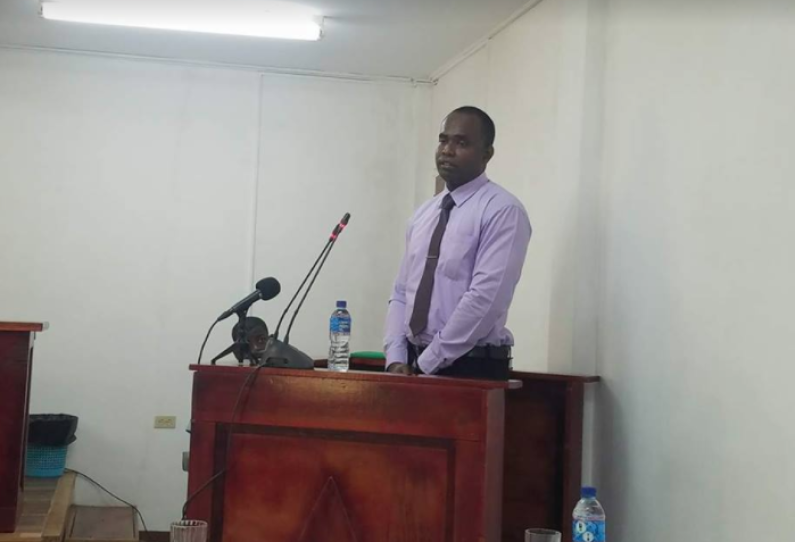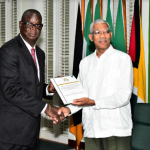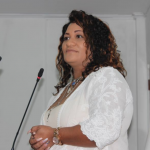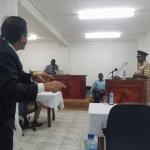
Crime Chief, Senior Superintendent Wendell Blanhum on Monday took the stand at the Commission of Inquiry into the alleged assassination plot against President David Granger. He offered his testimony in a very contentious atmosphere.
Blanhum said his humble opinion regarding the facts of the case was that the allegations made by Andrif Gillheart against businessman Nazim Khan were “inherently incredible.”
Gillheart had claimed that Khan offered him money to assassinate President Granger or find someone to do it.
The Crime Chief found himself engaged argumentative exchanges with Inquiry Commissioner Paul Slowe.
Mr. Blanhum said the Police’s Legal Adviser, Justice Claudette Singh (ret’d) SC did not recommend any charges to be made in the matter because she explained that the evidence was tenuous and there was simply nothing to charge anyone with.
Blanhum later explained that he understood the Legal Adviser’s explanation to mean that the evidence was “flimsy” and “had no bearing”.
The Head of the Criminal Investigation Department’s testimony was synonymous with earlier evidence given by Assistant Commissioner, Clifton Hicken.
But he clashed with Slowe when inquiries were made into whether he personally ensured that an entry was made in the occurrence book.
Blanhum said he did not consider that his responsibility. He told Slowe that he is a manager at the Executive level, who has supervisors and ranks that work below him and are tasked with those functions.
The Crime Chief and Commissioner Slowe also found themselves in another brief exchange when he was asked whether he found it strange that both Khan and Gillheart were both released on bail within 24 hours after the report was made.
Blanhum said he did not find it to be strange since significant progress was made with the investigation, a conclusion that Slowe did not willingly accept.
“None of the investigators have the foresight of a Jewish prophet,” Blanhum told the Commission.
Slowe also questioned why the matter was not treated as treasonous and why as Crime Chief, he was not more personally involved in the investigation outside of the period briefings and passing of information onto the Police Commissioner and Police Legal Adviser.
Blanhum said the offense was treated as incitement to commit murder although the President was involved.
“As Crime Chief, I must rely on facts, not my feelings or my opinions,” he said.
But the two gentlemen hit heads again when it was discovered that Blanhum recorded a wrong date in a report that was submitted to the Police Commissioner and subsequently to the National Security Committee.
Blanhum argued that the date had no relevance to the outcome of the investigation to which Slowe responded that it is an indication that due diligence was not placed on the report submitted while referring to his own experience in the Police Force.
The Crime Chief cautioned the former Assistant Commissioner not to make assumptions and comments based on his personal experience, as it can be prejudicial.

















You must be logged in to post a comment Login